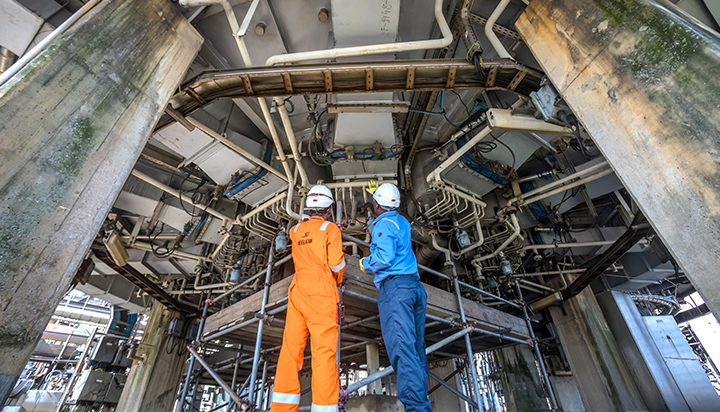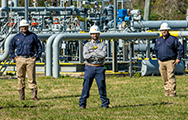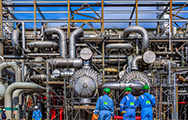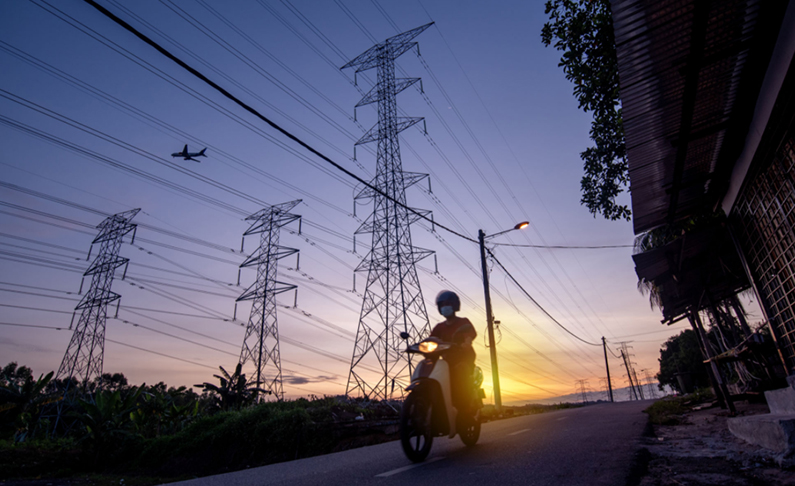Natural gas
Natural gas emits 45-55% fewer greenhouse gas emissions than coal when used to generate electricity, according to IEA data. Increasing the role that gas plays in the energy mix is one way countries can take action as the world moves to a low-carbon future.
Gas will help us achieve our target, in step with society’s progress towards meeting the Paris Agreement goal, to become a net-zero emissions energy business by 2050.
Natural gas
SUPPLY
We provide around 2.5% of the world’s natural gas
LNG shipping
We manage one of the world’s largest fleets of LNG carriers
Carbon-neutral LNG
We are delivering liquefied natural gas (LNG) to business customers in Asia that has had the carbon dioxide-equivalent emissions associated with its production, delivery and usage offset with carbon credits originating from projects that protect or develop natural ecosystems. We made the world’s first deliveries of carbon-neutral LNG in 2019 to Tokyo Gas in Japan and GS Energy in South Korea. In 2020, we secured new customers such as China National Offshore Oil Corporation (CNOOC) and CPC Corporation Taiwan. Since 2019, we have delivered seven cargoes, providing enough carbon-neutral LNG to power nearly 1 million homes for a year.
Carbon-neutral LNG allows our customers in these countries to offer, in turn, carbon-neutral gas to companies that want to decarbonise their energy use. In Japan, Tokyo Gas sells carbon-neutral gas to offices and utilities. It also makes hydrogen from carbon-neutral LNG at its Toyosu hydrogen station in Tokyo. CNOOC has auctioned the cargoes received from Shell on the Shanghai Petroleum and Gas Exchange, offering gas buyers the chance to reduce their net carbon footprint.
Gas production
In 2020, we took final investment decisions to sustain our production of natural gas in Australia and to expand our LNG production in Nigeria.
In Queensland, Australia, phase one of Arrow Energy’s Surat Gas Project (Shell interest 50%) is being developed to meet local and overseas demand. The gas produced from Surat will use pipelines and treatment facilities at our QGC gas plant to reduce the need to build new infrastructure, which could have an impact on safety and the environment.

Our Nigeria LNG joint venture aims to boost LNG production capacity, create more jobs and stimulate local industries.
In Nigeria, our Nigeria LNG joint venture (Shell interest 25.6%) will increase production capacity at the Bonny Island liquefied natural gas (LNG) facility by around a third. The expansion is expected to create about 12,000 direct jobs during construction and stimulate the growth of local industries that provide ancillary services. Construction is expected to take a number of years.
Visit www.shell.com/energy-and-innovation/natural-gas and www.shell.com/providing-more-and-cleaner-energy for more on how natural gas contributes to a lower-carbon world.




